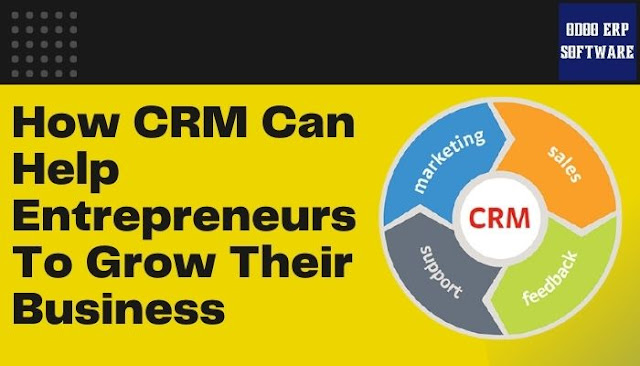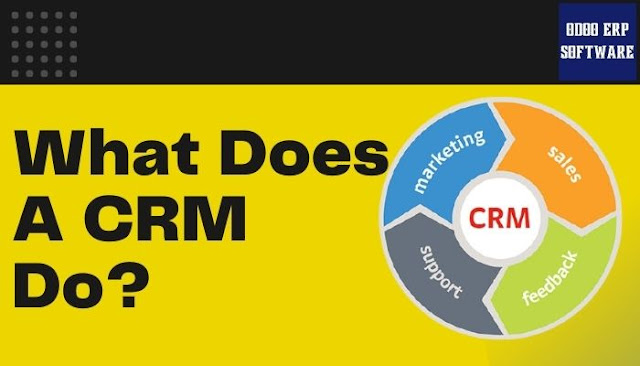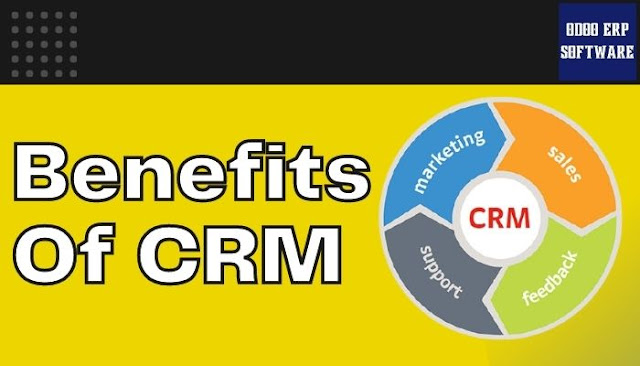Customer Relationship Management or CRMs is a software or technique to interact with the customers or retain them with the organization for a long time. The primary objective of CRM is to improve business relationships. The CRMs software helps the entrepreneurs to stay connected with the customers, streamline the processes, and improve profitability.
When we discuss CRM, we mean the CRM system or a technique that helps with contact management, sales management, productivity, and much more.
The software helps the organization to focus on the organization’s relationship with the individuals including customers, service users, colleagues, or suppliers throughout the lifecycle with them, finding new customers, winning business, all across the relationship, you will receive assistance and additional services.
Sales, customer service, business development, hiring, marketing, and any other line of business can benefit from a CRM system since it makes it easier to manage the external interaction that drives success. In one place, a CRM solution helps you to maintain records of customer and potential contact information, find market opportunities, monitor service issues, create marketing – and make data about every single encounter accessible to everybody who wants it at the company.
Data visibility and accessibility facilitate collaboration and productivity. Everyone in your firm can see how consumers were contacted, what they purchased, when they last purchased, how much they paid, and much more. CRM is beneficial to organizations worldwide, but it is particularly beneficial to small organizations since workers are constantly pressured to do that now.
What does CRM matter to entrepreneurs?
CRM is the largest revenue area of spending in enterprise software. We already know that if the company is going to last, we'll need a long-term strategy. We've set sales, business, and profit goals for you. However, collecting accurate, up-to-date information on your development can be difficult. How can you turn the influx of data from sales, customer service, marketing, and social media monitoring into actionable business intelligence?
A customer relationship management system (CRM) can give you a comprehensive view of your clients. Everything will be in one place: a simple, customizable dashboard that tells you about a client's past encounters with you, the progress of their orders, any remaining customer support issues, and more.
We may also use information from their public social media activity, such as likes and dislikes, as well as what they're saying and posting about you and your competitors. A CRM solution can help retailers in getting a sense of the sales or prospect cycle, making predicting simpler and more efficient. Every opportunity or opportunity will be marked, enabling you to pursue a logical path from inquiry to sale. Moving beyond CRM as a sales and marketing tool and embedding it throughout your company – from HR to customer service and supply-chain management – can result in significant productivity improvements.
What does a CRM do?
At the very beginning level, the CRM software allows the marketers and suppliers to direct and visualize their relationship with their valuable customers. It helps in tracking customer interactions and gathering information about the customers. When a marketer communicates with a customer in this fashion, the marketer is always aware of who the customer is and their previous encounters with the brand. This personalizes the conversation, boosts conversion opportunities, and fosters consumer trust and loyalty.
The CRM contains maintainability, which allows you to track a customer's or company's contact using a variety of available touchpoints, such as those from:
- Contact Forms
- Search Engine
- Emails
- Social Media
- Phone Calls
The software can handle a variety of duties, including automating repetitive activities for marketers, setting reminders for important dates, and displaying warnings if something requires quick attention. Some CRMs also provide analytics features, designed to track the effectiveness of various lead generation and converting initiatives.
The following is a list of features that a CRM platform normally provides:
Lead Management: The software helps in tracking the company’s lead, enables the marketing team to enter a new lead into the organization, and helps in tracking and visualizing the information about them.
Marketing Automation: Several CRM software enables the marketing strategy to automate tedious tasks. For illustration, the system transmits marketing emails to customers at periods determined by the marketer or produces social media updates on a set schedule. Marketing automation's purpose is to keep sales leads engaged and assist them to convert to paying customers.
Sales Automation: It helps in tracking customer interaction and boosts the selective business function of the sales cycle which is important to follow leads and attract and acquire new customers.
Workflow Automation: CRM solutions help businesses reduce everyday tasks, enabling professionals to concentrate on more innovative and elevated tasks.
Analytics: Built-in analytics capabilities in CRM platforms can provide information and help enhance customer retention rates. A marketer can utilize the data to create customized campaigns. CRM analytics help with attribution tracking and provide data on the quality of the user experience.
Artificial Intelligence: CRM products, such as Salesforce, have AI features built in to help automatically discover trends that lead to successful sales, which can help you develop more accurate marketing plans in the future.
Individualized customer experiences: We can use software to create personalized and compatible experiences for your valuable customers beyond the marketing channels, which may improve the conversation and enhance brand awareness.
Benefits of CRM
There are the following benefits of the CRM implementation in the organization:
1. Increased Revenue and Decreased overhead: There are two ways to improve an organization’s financial status either to increase the revenue or decrease the expenditure.
Beyond everything, a CRM system may assist in shortening sales cycles and increasing win rates. This is accomplished by assisting in the identification and prioritizing of the most profitable accounts and marketing initiatives. You may reduce wasted effort by focusing sales and marketing teams on the customers with the highest profit potential. The flipside of account identification is identifying non-profitable or difficult customers who require special attention.
A CRM can also help you save money on overhead. The CRM can provide a consolidated perspective into all revenue-affecting information by linking with other financial systems, decreasing the effort necessary to see related data. In addition, by automating routine operations, the system reduces the number of manual procedures and the amount of time spent on them.
2. Improved Customer Satisfaction: A satisfied customer is a loyal customer, and a CRM may help you improve your customers' overall experience with your business. Sales, marketing, customer service, and other departments that contact customers directly might share account information. As a result, when a customer is transferred from marketing to sales and then to support, all stakeholders are kept informed.
The CRM can provide insight into a customer's probable future needs by tracking their past. Your workers will be aware of future requests if they know if a customer has a tendency to buy a certain sort of goods or has a repeat service demand.
3. Optimization of Marketing: Making promotional strategies effective is one of the most difficult challenges. CRMs may look back on past initiatives and users to help you adjust tool that helps companies to be more lucrative and effective. Replies to automated campaigns, like email or online marketing, can be automatically assessed by the CRM and then forwarded to sales representatives, allowing sales to focus on the most promising leads.
Conclusion
Client Relationship Management allows a firm to match its strategy with its client’s requirements in order to effectively address those goals and ensure long-term brand loyalty. Nevertheless, in order to achieve these goals, the various firm departments must collaborate and utilize measures in a coordinated manner. By using CRM software, a customer database can be assessed and updated.







